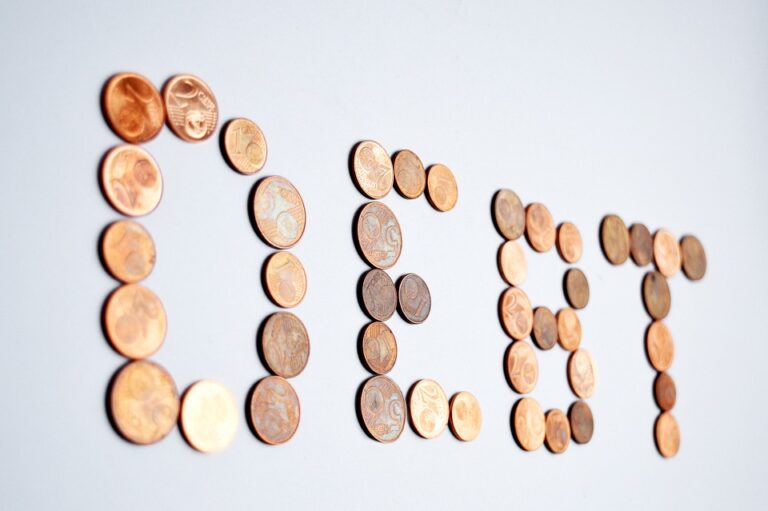Last updated Jun. 25, 2024 by Peter Jakes
Loans for People with Bad Credit
Navigating financial difficulties is never easy, especially when saddled with a bad credit score. Often, those with poor credit face significant challenges obtaining loans. Yet, there are options available specifically catering to individuals with low credit scores. This article aims to demystify the process and options for securing loans despite having bad credit, and guide you through the essential steps and considerations.
Understanding Bad Credit
Bad credit typically refers to a score below 580 on the FICO scale. This can be the result of missed payments, high levels of debt, or bankruptcy. Bad credit signals to lenders that you are a high-risk borrower, leading to higher interest rates and less favorable loan terms.
Types of Loans for People with Bad Credit
- Personal Loans: These are unsecured loans that don’t require collateral. They can be obtained from traditional banks, credit unions, or online lenders. Interest rates are generally high, but there are lenders who specialize in loans for those with less than perfect credit.
- Secured Loans: These involve collateral such as a car or savings account. Securing the loan with an asset typically results in lower interest rates, making them a viable option for those with bad credit.
- Payday Loans: Short-term loans that should be approached with caution due to extremely high interest rates and fees. They offer quick cash but can trap borrowers in a cycle of debt.
- Cash Advances: Often offered by credit card companies, this type of loan provides immediate cash but with a high APR. It’s critical to understand the costs involved.
- Peer-to-Peer Loans: Online platforms connect borrowers with individual lenders. These often offer more lenient credit requirements and competitive interest rates.
Steps to Obtain a Loan with Bad Credit
- Check Your Credit Score: Before applying for a loan, obtain your credit report and score from major credit bureaus. Understand where you stand and look for any inaccuracies that can be disputed.
- Compare Lenders: Shop around to find the best rates and terms. Utilize online tools to compare offers from different lenders.
- Prepare Documentation: Lenders will require proof of income, employment, and identification. Having these documents ready can speed up the approval process.
- Consider a Co-signer: A co-signer with a good credit score can help you secure better loan terms. Note, however, that the co-signer will be equally responsible for the loan.
- Apply for Loans: Once you’ve gathered all necessary information and selected a lender, proceed with the application process.
- Understand the Terms and Conditions: Read the fine print and ensure you understand all terms, fees, and repayment schedules.
Tips to Improve Your Chances
- Increase Your Income: Additional income sources can improve your eligibility. Side jobs or freelance work can help demonstrate financial stability.
- Reduce Debt: Paying down existing debt can improve your credit score over time.
- Build a Budget: A detailed budget showcasing financial responsibility can be an asset to your loan application.
- Avoid Multiple Applications: Applying for too many loans in a short period can negatively impact your credit score. Be strategic about your applications.
The Pros and Cons of Loans for Bad Credit
Pros:
- Access to Funds: Provides financial relief in emergencies or for essential expenses.
- Credit Improvement: Timely repayments can improve your credit score over time.
- Variety of Options: Many types of loans cater specifically to those with bad credit.
Cons:
- High Interest Rates: Expect significantly higher rates compared to those with good credit.
- Risk of Debt Cycle: Especially with payday loans, there’s a risk of falling into a debt cycle.
- Collateral Risks: Secured loans require collateral, which you risk losing if you default.
Important Considerations
- Loan Scams: Be aware of predatory lenders looking to take advantage of those with bad credit. Ensure the lender is reputable.
- Fees and Penalties: Late payment fees, early repayment penalties, and other costs can make loans more expensive.
- Repayment Plan: Before taking a loan, ensure you have a clear, realistic plan for repayment.
Alternatives to Traditional Loans
- Credit Counseling: Non-profit organizations offer advice and assistance in managing your finances.
- Debt Consolidation: Combine multiple debts into one loan with a lower interest rate, simplifying repayment.
- Borrowing from Friends or Family: This can be a less costly option but ensure to formalize the agreement to avoid misunderstandings.
✓ Short Answer
Loans for people with bad credit include personal loans, secured loans, payday loans, cash advances, and peer-to-peer loans. Steps to obtain these loans include checking your credit score, comparing lenders, preparing documentation, considering a co-signer, applying for loans, and understanding terms and conditions. Improving your chances involves increasing your income, reducing debt, and building a budget.
FAQs
Q1: What is considered a bad credit score?
A: Typically, a FICO score below 580 is considered bad credit.
Q2: Can I get a loan if I have bad credit?
A: Yes, there are lenders who specialize in offering loans to those with bad credit, although terms may be less favorable.
Q3: What types of loans are available for people with bad credit?
A: Options include personal loans, secured loans, payday loans, cash advances, and peer-to-peer loans.
Q4: Will a co-signer improve my chances of getting a loan?
A: Yes, a co-signer with good credit can improve your chances and offer better loan terms.
Q5: What are the risks involved with payday loans?
A: Payday loans have extremely high interest rates and can lead to a cycle of debt if not managed properly.
Q6: How can I improve my credit score?
A: Timely payment of debts, reducing existing debt, and avoiding multiple loan applications can contribute to improving your credit score.
Q7: Are there alternatives to loans if I have bad credit?
A: Yes, options include credit counseling, debt consolidation, and borrowing from friends or family.
Q8: What should I be wary of when applying for a loan with bad credit?
A: Be cautious of predatory lenders, high fees, and understanding all conditions and terms.
Q9: How can additional income help with loan approval?
A: Additional income sources can demonstrate financial stability to lenders, improving your eligibility.
Q10: Is it necessary to provide collateral for all types of loans?
A: No, only secured loans require collateral, while personal loans, payday loans, and peer-to-peer loans typically don’t.
In conclusion, securing a loan with bad credit is challenging but not impossible. Through careful consideration of options, understanding terms, and taking proactive steps to improve your financial situation, you can navigate the borrowing landscape effectively.






